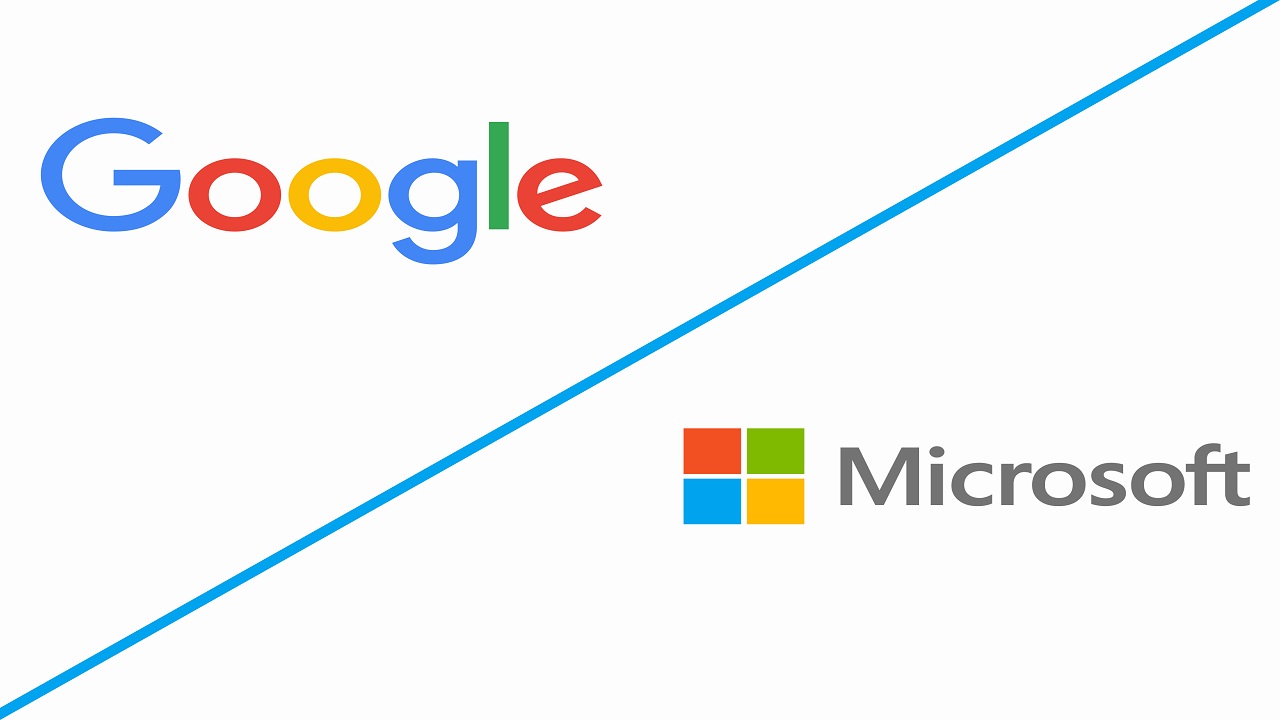From Windows to Chrome: The Evolution of Microsoft and Google
The blog discusses the evolution of Microsoft and Google, from their early days to their current status as tech giants. It covers key milestones in their histories, including the launch of Windows and the rise of Chrome, and examines how both companies have expanded their offerings to include a range of products and services. The blog also discusses the evolution of operating systems and web browsers, and concludes that while Microsoft and Google have taken different paths, they both share a commitment to innovation and pushing the boundaries of what's possible.

The tech industry has seen many players come and go over the years, but two companies have stood the test of time: Microsoft and Google. From their early days as startups to their current status as tech giants, both companies have undergone significant evolution, constantly adapting to changing markets and emerging technologies. In this blog post, we will take a closer look at the evolution of Microsoft and Google, examining key milestones in their histories and how they have expanded their offerings over the years. We will also explore the evolution of operating systems and web browsers, and consider what the future may hold for these two tech giants.
Windows: The Early Years
Microsoft's journey began in 1975 when Bill Gates and Paul Allen founded the company. The company's first product was the BASIC interpreter for the Altair 8800 microcomputer. However, it was the launch of MS-DOS in 1981 that put Microsoft on the map. MS-DOS was the first operating system for IBM-compatible personal computers and quickly became the dominant operating system in the world.
In 1985, Microsoft launched Windows, the first graphical user interface (GUI) for IBM-compatible PCs. Windows was a game-changer and revolutionized the way people interacted with computers. Over the years, Microsoft continued to improve Windows, introducing new features and capabilities with each release.
The Rise of Google
Google's journey began in 1998 when Larry Page and Sergey Brin founded the company. The company's primary product was a search engine that quickly became the dominant player in the market. Google's search engine was based on a revolutionary algorithm that ranked web pages based on their relevance to the search query.
Over the years, Google expanded its offerings to include a range of products and services, including Gmail, Google Drive, and Google Maps. In 2008, Google launched Chrome, its own web browser. Chrome was a game-changer and quickly became the most popular web browser in the world.
The Evolution of Microsoft and Google
Both Microsoft and Google have evolved significantly since their early days. Microsoft has expanded its offerings to include a range of products and services, including productivity software, gaming, and cloud computing. The company's acquisition of LinkedIn in 2016 was another strategic move that helped it expand its reach and influence.
Google, on the other hand, has expanded its offerings to include a range of products and services, including mobile operating systems, smart home devices, and artificial intelligence. The company's acquisition of YouTube in 2006 was another strategic move that helped it gain a foothold in the video-sharing market.
The Evolution of Operating Systems
One of the key areas of evolution for both Microsoft and Google has been operating systems. While Windows continues to be the dominant operating system for desktop computers, Microsoft has also made significant investments in its mobile operating system, Windows Mobile. However, Windows Mobile struggled to gain traction in the market, and Microsoft eventually shifted its focus to cloud computing and other areas.
Google, on the other hand, has made significant investments in its mobile operating system, Android. Android is the dominant mobile operating system in the world, powering over 80% of all smartphones. Google has also made significant investments in its Chrome OS, which is designed for use on low-cost laptops and tablets.
The Evolution of Web Browsers
Another key area of evolution for both Microsoft and Google has been web browsers. While Internet Explorer was once the dominant web browser in the world, it has since been replaced by Microsoft Edge. Microsoft Edge is designed to be faster and more secure than Internet Explorer and supports extensions.
Chrome, on the other hand, continues to be the most popular web browser in the world. Google has continued to invest in Chrome, adding new features and capabilities with each release. Chrome is also designed to be faster and more secure than other web browsers, and it supports a wide range of extensions.
In conclusion, the evolution of Microsoft and Google has been marked by innovation, adaptation, and disruption. Both companies have expanded their offerings to include a range of products and services, and they continue to invest in new technologies and capabilities. As we look to the future, it's clear that both companies will continue to play a significant role in shaping the tech industry.
While Microsoft and Google have taken different paths in terms of their product offerings and business strategies, they both share a commitment to innovation and pushing the boundaries of what's possible. As technology evolves and new challenges emerge, it will be interesting to see how these two tech giants continue to adapt and evolve.
One thing is certain, however: the evolution of Microsoft and Google has had a profound impact on the world we live in today. From the way we interact with computers to the way we search for information online, their products and services have changed the way we live, work, and play. And as technology continues to advance, it's clear that Microsoft and Google will continue to play a critical role in shaping the future.
ALSO READ
Envision Energy India Secures Strategic Wind and Battery Storage Milestones
Steve Smith: Unshaken by Sandpapergate and Eyeing Milestones
SECI Earns 'Excellent' Rating for FY 2023-24, Marks Milestones in Renewable Energy Growth and Financial Performance
Mumbai-Ahmedabad Bullet Train Bridging Future: Progress and Milestones
India's Naval Milestones: Strengthening Security with Self-Reliance










